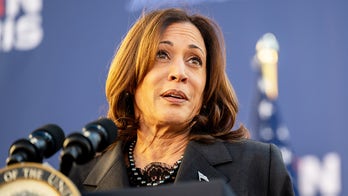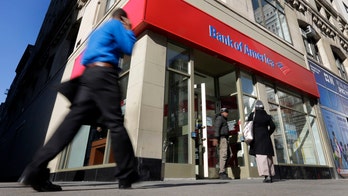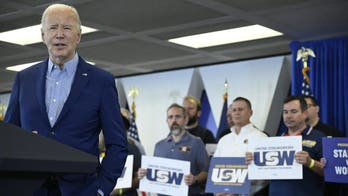President Obama is heading to Florida to tout the benefits of the massive economic stimulus bill he signed shortly after taking office seven years ago.
Obama pumped more than $760 billion into a then-slumping economy beginning in early 2009 in a frantic effort to halt the worst economic downturn in generations. It was an unsettling period for many Americans as hundreds of thousands of jobs disappeared, unemployment climbed into double digits and home values plummeted.
Obama will argue during a stop in Jacksonville on Friday that the country is on a more solid footing because of this and other "tough choices" he made early in his first term. It's an argument the White House has sought to connect to the upcoming election to replace Obama.
"This is an important part of the answer to the question voters will be asking themselves, which is: Are you better off than you were seven years ago? The answer to that is yes," said Obama's spokesman, Josh Earnest.
Just a few Republican senators voted for the Recovery Act. Most GOP lawmakers opposed the measure and argue that taxpayers got too little in return on such a sizable investment. They would often taunt the administration by repeatedly asking, "Where are the jobs?"
Money from the Recovery Act was spent on transportation infrastructure, clean energy and other public investments. Obama also used the money to cut taxes for middle-class and working families, provide businesses with tax relief and provide assistance to financially strapped states.
Despite some high-profile failures on the clean energy front, the administration sees the more than $90 billion that was spent on the industry under the stimulus to create jobs and spur development of new technologies as a bright spot.
The solar company Solyndra became the first business to get a federal loan guarantee under an existing program that Obama expanded under the stimulus. But the company failed soon after receiving the loan guarantee, at a cost to taxpayers of more than $500 million. Republicans and other critics cited Solyndra as an example of wasteful spending under the program.
In Jacksonville, Obama planned to visit a factory owned by Saft, which makes high-tech batteries. The company won a $95.5 million Recovery Act grant and matched that amount to build the factory, which produces the advanced lithium-ion batteries that power electric vehicles, among other uses.
The factory employs about 300 people in the Jacksonville area, including veterans, Earnest said.
Last month, Obama visited Detroit to highlight the recovery among U.S. auto makers. His decision to bail out the industry was also unpopular, but Obama says it's another example of a tough choice he had to make early in his presidency that ended up benefiting the American people.
With just months left in office and with Republican presidential candidates criticizing his leadership on a variety of fronts, the trips are part of an effort by Obama to burnish his legacy as a president who pulled the country back from the brink of a recession.




